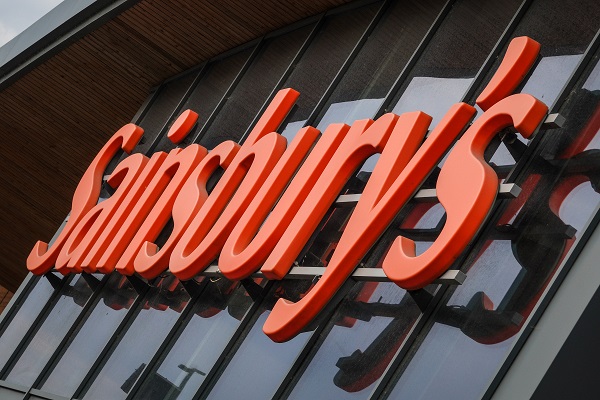Sainsbury’s says food inflation falls during competitive Q1
4th July 2023 08:21
by Richard Hunter from interactive investor
It’s pumped a lot of money into lowering prices, but we don’t yet know how that will impact margins and whether the grocer is gaining market share. Our head of markets runs through first-quarter results.

Sainsbury (J) (LSE:SBRY)’s increasing focus on value is reaping some rewards, particularly during the key events over the first quarter of their financial year.
Previously having reported a very successful Christmas period, Sainsbury's has now seen the benefits of Easter, the coronation and several bank holidays, where its ranges are appealing to an ever increasingly cost-conscious consumer. In particular, the group has returned to basics with significant focus on the Grocery business, where it has continued to invest in lowering prices, including the ongoing Aldi Price Match campaign.
- Learn more: SIPP Portfolio Ideas | How SIPPs Work | Transfer a SIPP
At the same time, the company notes that food inflation has started to fall, adding more opportunity to pass on savings to the customer. As such, Grocery sales were the outperformer during the 16 weeks to 24 June, with sales having risen by 11%, and underpinned by a wide array of choice between traditional supermarkets, convenience stores and online. However, the impact on margins remains to be seen following such investment, alongside whether market share can be grown or will simply be maintained.
General Merchandise sales grew by 4% over the quarter, bolstered by growth of 5.1% from Argos, where strong sales of consumer electronic products and household electricals lifted revenues. Product availability, value and the convenience of moving many Argos stores into existing Sainsbury supermarkets are clearly having the desired effect of revitalising a brand which had been under competitive pressure.
Elsewhere, the picture is rather more mixed. Clothing sales continue to be buffeted by a combination of competition and the weather, leading to a decline in sales of 3.7%, while fuel sales decreased by 21.4% after three strong quarters in the previous year. This may be something which Sainsbury's chooses to revisit, since its more concerted current efforts within Grocery are to some extent at the expense of these lines.
Even so, overall like-for-like sales excluding fuel grew by 9.8% over the three months, which compares with a figure of 7.8% in the previous quarter. Strong retail free cash flow guidance has been maintained, which should augur well for combatting other issues outside the remit of this trading statement, such as the reduction of net debt. The continued cost savings programme will also need to contribute so that the group van continue its investment in pricing.
- Your money should have been invested here in June. What about July?
- Merryn Somerset Webb: the scariest chart in the world
- Investors expecting to make returns comfortably ahead of inflation in 2023
At a headline level, Sainsbury's is maintaining its guidance for full-year underlying pre-tax profit of between £640 million and £700 million, which was expected given that it would be unusual to be upping its outlook at this early stage. In the meantime, the dividend yield of 4.8% provides an attraction to income-seeking investors, and is comfortably covered from earnings.
The shares have been on a run of late, and have added 32% over the last year, as compared to a rise of 4% for the wider FTSE 100. Over the last two years, however, the growth has been more pedestrian with a rise of just 2%. It is also noteworthy that fierce competition is not just limited to the aisles, but also extends to investors.
- Cash or shares? What the data tells us about where to invest
- The 13 FTSE 100 shares behind July’s dividend bonanza
Indeed, the market consensus of the shares as a 'sell', with Tesco (LSE:TSCO) the preferred play in the sector, highlights something of a gulf between the two. It also reaffirms that while there is much to like within this latest release, there is also much to do for Sainsbury's to regain anything like its previous share price levels.
These articles are provided for information purposes only. Occasionally, an opinion about whether to buy or sell a specific investment may be provided by third parties. The content is not intended to be a personal recommendation to buy or sell any financial instrument or product, or to adopt any investment strategy as it is not provided based on an assessment of your investing knowledge and experience, your financial situation or your investment objectives. The value of your investments, and the income derived from them, may go down as well as up. You may not get back all the money that you invest. The investments referred to in this article may not be suitable for all investors, and if in doubt, an investor should seek advice from a qualified investment adviser.
Full performance can be found on the company or index summary page on the interactive investor website. Simply click on the company's or index name highlighted in the article.